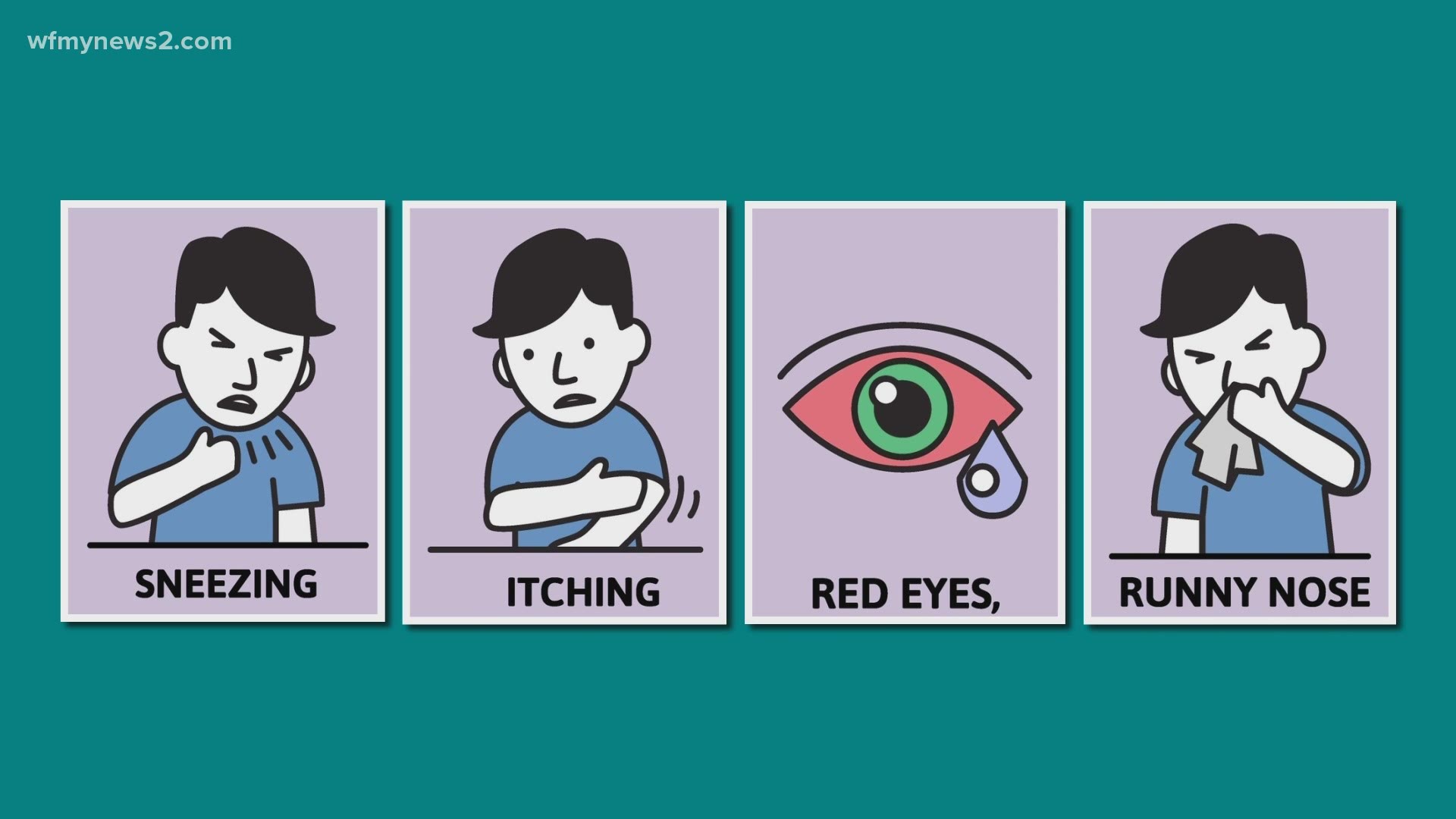GREENSBORO, N.C. — Is it allergies or is it COVID-19? We’ve been asking ourselves that for a year now. It doesn’t seem to be getting any easier to figure out at the beginning.
If you're dealing with -sneezing, an itchy face, watery and red eyes, and a runny or stuffy nose-- chances are you're dealing with common allergies, not COVID-19.
But, If you have a cough, fever, and shortness of breath-- these are the common symptoms for COVID-19.
“There are some similarities between allergies and COVID-19 symptoms. For example, the coughing, sore throat, but something that stands out with COVID-19, patients will have fever, nausea, diarrhea or even loss of taste or smell,” says Minoka McPherson, a Nurse Practioner.
Without those key COVID-19 symptoms, chances are the pollen is your problem. The pollen is high, high, and high for the next few days.
And if you're wondering what is making you so miserable at this time of year, it's the trees. The tree pollen is at a peak in April.
Here are a few ways to help your allergies: Consumer Reports Recommendations
Pets: Your pet brings the pollen in on their fur. Don't let them sleep in your bed or even your bedroom.
Shower: Move your shower to bedtime, this helps to wash any pollen off your hair or skin.
Vacuum: Vacuum your floors at least once a week, but use a bagged model, not a bin model. The bin model floats all the pollen back into the air when you empty it.
IS IT A VACCINE SIDE EFFECT MAKING ME FEEL BAD?
When factoring in the side effects of getting a COVID-19 vaccine, the similarities continue. For example, both the shot and a coronavirus infection could bring chills and fever. Both the shot and allergies could come with tiredness and headache.

